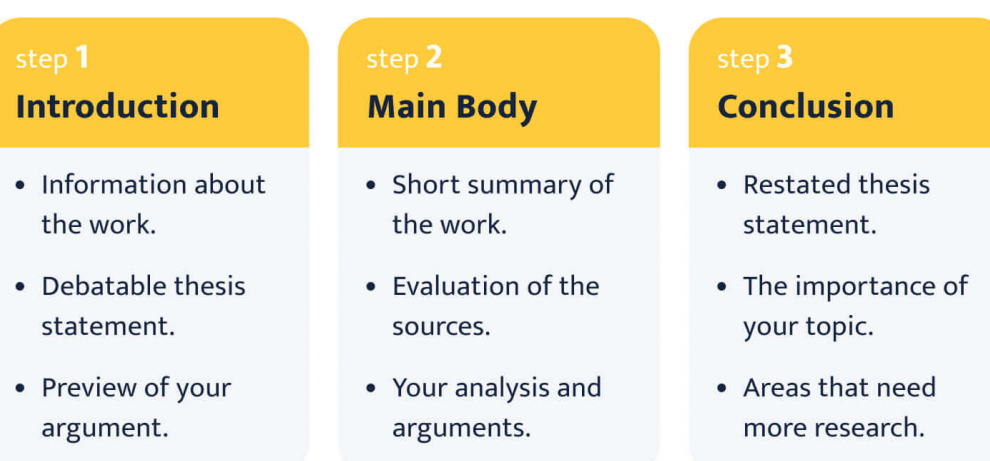What is a Critical Analysis Essay?
A critical analysis paper is a type of academic writing that involves examining a piece of literature, artwork, film, or any other subject, and evaluating its strengths, weaknesses, and significance. It requires a thorough understanding of the subject matter and the ability to provide an insightful and objective critique.
Step-by-step guide to help you write a successful critical analysis paper:

Choose a Subject:
Select a piece of literature, artwork, film, or any subject that you want to analyze critically. Make sure it's something you are familiar with and have enough information about to support your analysis. Choosing the right subject for your critical analysis is crucial as it will determine the depth and quality of your analysis. Ultimately, selecting the right subject for your critical analysis requires a balance between your interests, the subject's complexity and significance, available resources, and the scope of your paper. Take your time to research and consider different options before finalizing your choice.
Understand the Subject:
Before you start writing, take the time to thoroughly understand the subject. Read the literature piece, watch the film, or study the artwork multiple times to gain a comprehensive grasp of its content and context.
Research:
Research plays a crucial role in writing a comprehensive and well-informed critical analysis paper. It helps you gather relevant information, gain a deeper understanding of the subject, and support your arguments with evidence. Conduct additional research about the subject to gather relevant background information, historical context, and the author's or creator's background. This will help you gain a deeper understanding of the work and its significance. Remember to approach your research with an open mind and be ready to refine your analysis based on the evidence you discover. Properly integrating the research into your critical analysis paper will strengthen your arguments and showcase a well-informed perspective on the subject.
Take Notes:
While researching and reading the subject, take detailed notes of your observations, thoughts, and reactions. Jot down significant quotes, scenes, or passages that you may want to reference later in your analysis. Taking effective notes during your research process is essential for a successful critical analysis paper. Well-organized and detailed notes will help you keep track of important information, quotes, and ideas, making it easier to structure your analysis and support your arguments. Detailed and organized notes during your research phase will lay a strong foundation for your critical analysis paper. It will streamline the writing process and ensure that you have all the necessary information and evidence at your fingertips when you begin drafting your analysis.

Identify the Main Argument:
Determine the main argument or thesis of the subject. What is the author/creator trying to convey? What message or theme is being explored? Reading the Title and Abstract of the work, whether it's a book, article, or any other written piece will provide you with a concise overview of the author's main argument or purpose. The introduction and conclusion of the work are also likely to contain explicit statements about the main argument or thesis. Skim through these sections to get a sense of the author's central message. Understanding the central point will be essential in structuring your analysis.
Analyze the Content:
Break down the subject into smaller components, such as characters, plot, setting, themes, symbolism, style, and tone. Analyze each element and consider how they contribute to the overall message or purpose.
Evaluate Techniques:
Assess the author's/creator's use of literary or artistic techniques. Consider how they use language, imagery, symbolism, camera angles (in film), or any other elements to convey their message effectively.
Consider the Audience and Context:
Think about the intended audience and the historical, social, or cultural context in which the subject was created. Understanding these factors will help you evaluate the work more comprehensively.
Address Counterarguments:
A strong critical analysis paper acknowledges potential counterarguments and addresses them. Addressing counterarguments in your critical analysis paper is an essential aspect of presenting a well-rounded and persuasive argument. Acknowledging opposing viewpoints and addressing potential objections demonstrates that you have thoroughly considered the subject from different angles. Anticipate possible objections to your analysis and offer valid responses to strengthen your argument. It engages your readers by showing that you have considered a wide range of perspectives before presenting your conclusions.
Provide Evidence:
Support your analysis with evidence from the subject itself, as well as from external sources, such as literary criticism, scholarly articles, or historical data. Use direct quotes, references, and examples to back up your points.
Develop a Clear Thesis:
Based on your analysis, develop a clear and concise thesis statement that presents your main argument about the subject. This thesis will guide the entire paper and should be included in your introduction.
Organize Your Paper:
Structure your critical analysis paper logically. Start with an introduction that introduces the subject, provides necessary background information, and presents your thesis. Follow it with body paragraphs that each focus on a specific aspect of your analysis, using evidence to support your points. Finally, conclude your paper by summarizing your main points and reiterating the significance of your analysis.
Maintain a Formal Tone:
Keep the tone of your critical analysis paper formal and objective. A formal tone demonstrates that you are approaching the subject matter seriously and academically. Write your critical analysis using the third-person point of view. Avoid using personal pronouns like "I," "we," or "you." Instead, use "the author," "the reader," or "the researcher" to maintain objectivity. Also, Avoid Colloquial Language, slang or informal expressions. Stick to Standard English and academic vocabulary to convey a formal and professional tone.
Proofread and Edit:
After completing the first draft, revise, proofread, and edit your paper carefully. Check for grammatical errors, clarity of expression, and consistency in your argument.
Cite Your Sources:
If you used external sources, make sure to cite them properly using the appropriate citation style (e.g., APA, MLA, Chicago).
Remember, a critical analysis paper aims to offer an in-depth and insightful examination of the subject. It should demonstrate your ability to think critically, analyze effectively, and present a well-structured and well-supported argument.

